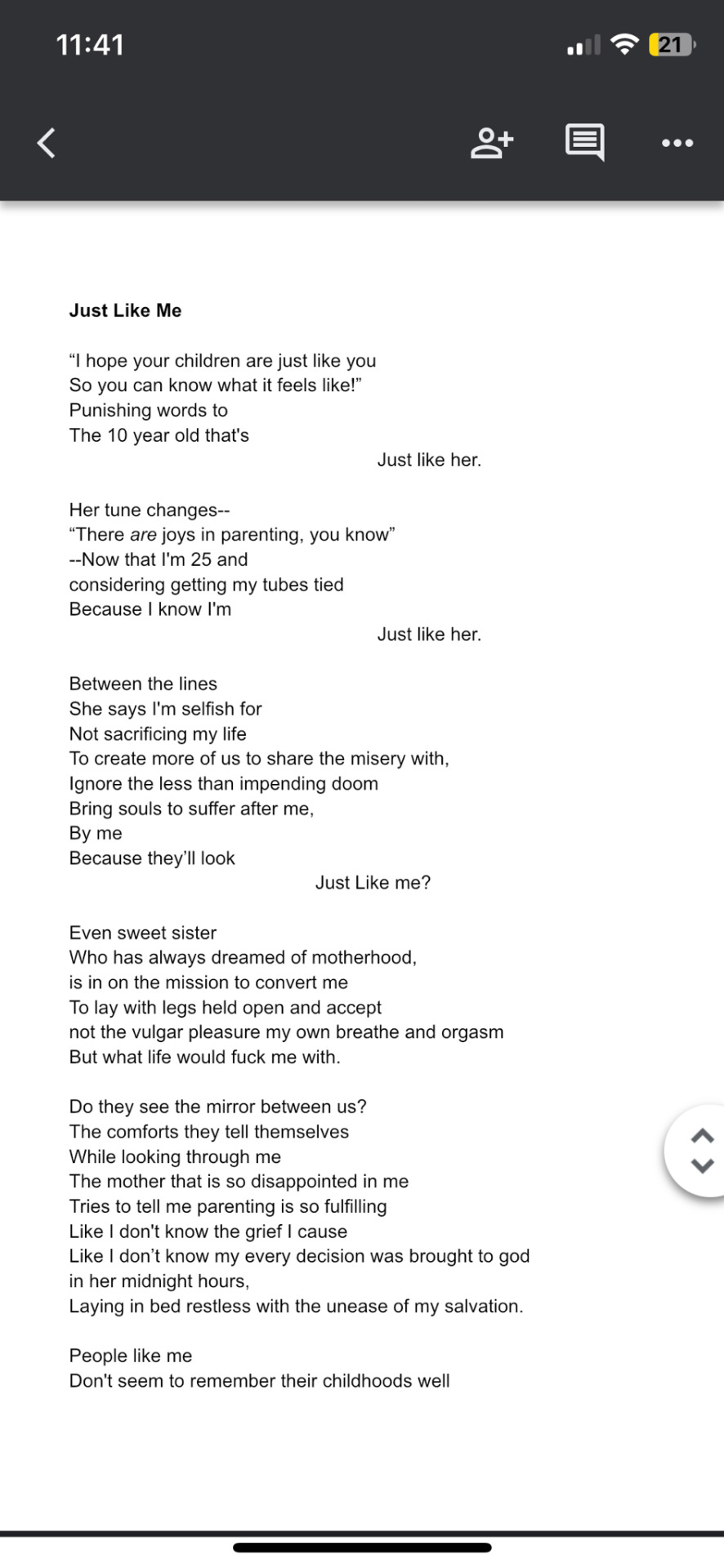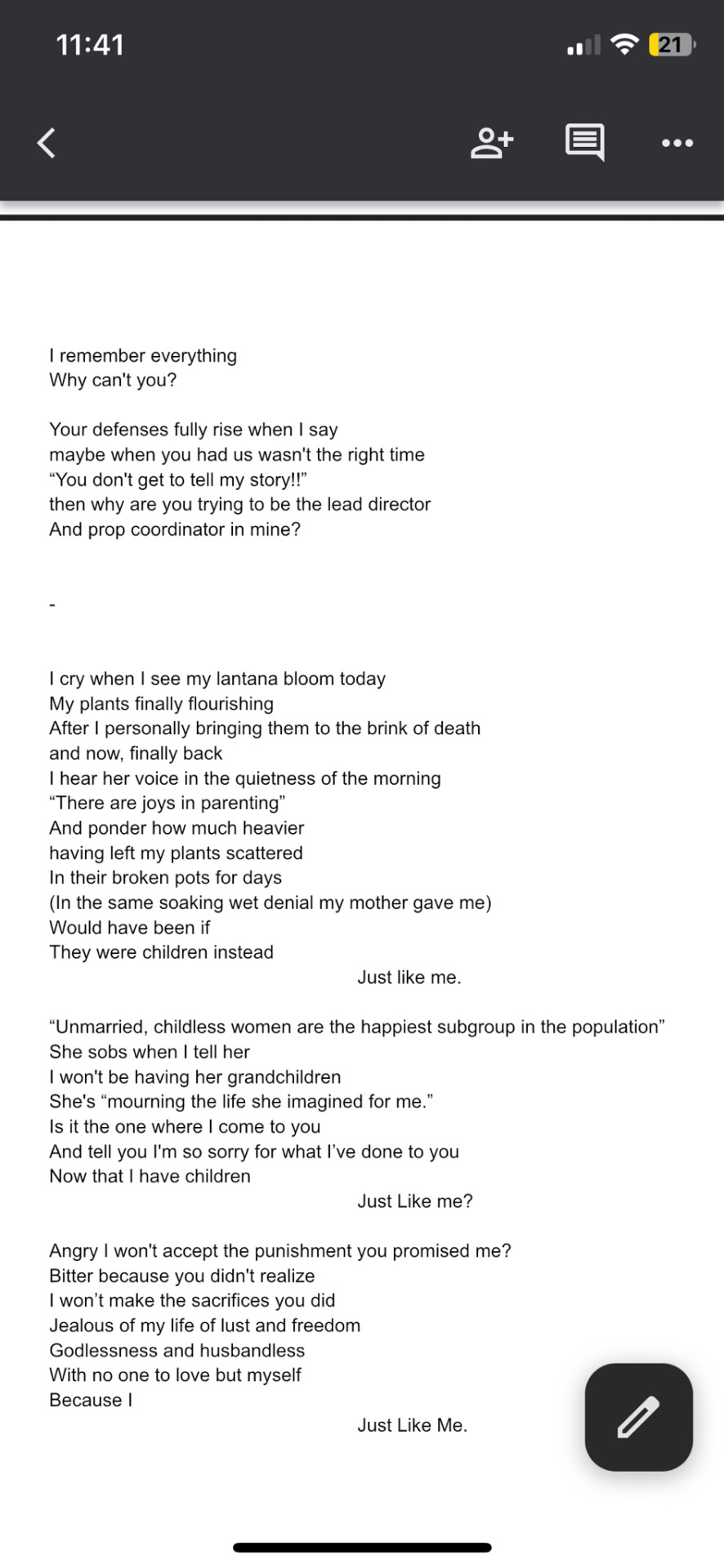#Unmarried with Children
Explore tagged Tumblr posts
Text










Dinosaurs S2 E9 Unmarried with Children GIFset (2/2)
The First Apperence of the Sinclairs neighbor and friend Monica Devertebrate.
#ABC sitcom#TGIF#Bob Young#Michael Jacobs#Brian Henson#Jim Henson's Dinosaurs#Monica Devertebrae#Fran Sinclair#Charlene Sinclair#Brontosaurus#Dinosaurs tv series#Dinosaurs#Dinosaurs Season 2#1990s#1991#November 1991#GIFset#Realitor#Businesswoman#Suzie Plakson#Divorce#Satire#Unmarried with Children#Truth in Fiction#First Appearence
14 notes
·
View notes
Text





Dead boy detectives newsies AU for the like 3 people that share my interests
#my children arghhhh#forget the fact that Sarah’s hair should be white lol#are there even people that like both fandoms except me and my discord friends?#I also had no idea what Niko’s bottom looked like so I had to improvise#but like it fits so fucking well#David jacobs the man who every male falls in love with#okay but who would be Monty#the sprites would be the delancys#just unmarried#can you tell my motivation left me while drawing Sarah#I would make some cool jokes and parallels but I’m too tired#it’s like 2 am#my youth consecration is tomorrow yayyy#it’s like the non religious bar mitswa#very Jason from falsettos#hopefully no one dies at mine#newsies 1992#92sies#newsies#david jacobs#jack kelly#david jacobs newsies#sarah jacobs newsies#katherine plumber#fanart#dead boy detectives#edwin payne#charles rowland#niko dead boy detectives#crystal palace
94 notes
·
View notes
Text
Considering the rise of forced-birth, anti divorce extremists in this country, people really need to appreciate the no marriage no bio kids norms/values of the Jedi
#consequently this also might explain just why certain people are so hung up on those values#they hate divorce and love forcing people to have kids#so a culture that has no need for marriage or bio children freaks them out#real life#sw#star wars#wooloo-writes#wooloo writes#abortion#divorce#forced birth extremists#anti republicans#us#us politics#jedi#jedi order#pro jedi#pro jedi order#in defense of the jedi#in defense of the jedi order#jedi appreciation#jedi culture#jedi values#singlehood#unmarried#child free
114 notes
·
View notes
Text
"contentment in singleness" doesn't require you to stop desiring marriage & family. it doesn't require you to stop pursuing marriage & family.
Christians are called to be content in any situation--that doesn't mean we abandon all our good desires and concrete goals.
contentment is to trust/rest in God's promises to love you, provide for you, and make you holy.
you can do all of those things, and earnestly want and seek a husband.
He who finds a wife finds a good thing, and obtains favor from the Lord. Proverbs 18:22
"Favor from the Lord" meaning, of course, blessing as the result of a life molded by wisdom.
Now, how can one find a good wife without seeking? Seek without wanting? And how can wisdom and contentment be mutually exclusive?
#this post brought to you by the drive home from church yesterday#when I realized that I'm very comfortable (and have been for awhile) where I am#unmarried and unattached but planning to be otherwise#and if I'm always planning for something that never happens? well that's just fine too#I'll have spent my youth becoming the woman I always wanted to be--not for a husband and children but for my parents & the church#and I think it took realizing that I didn't have to give up a good desire before I could *actually* be content#we are called to desire Christ's return always. that doesn't equal discontentment with our lives right now.#Christianity#x#for me it's now as simple as the Created Order fact that MOST people need to marry and procreate to keep civilization from collapsing#and on another level (mapped OVER that fact) it's as simple as God's ordinary means of kingdom-building being families#but goodness knows Christian young people have been inundated with so much overthought on this subject (myself included)#that it's necessary to parse it all out sometimes
131 notes
·
View notes
Text
What the fuck did I just read in the year of our lord two thousand and twenty-four
#a Newsweek op-ed about Taylor being a poor role model for girls because she’s unmarried and childless and has dated multiple men#in a semi reputable news publication?!#is it 2012?!#’sure she sustains world economies and breaks every record she touches#but won’t someone think of the children?!’#men should just not be allowed to write about women especially not Taylor yiiiiiiiikez
28 notes
·
View notes
Text
An Apology from a man to his future wife!
DearFutureWife, I know, I don't know you. But yet I want to apologize to you.
I'm Sorry...
Because I haven't so far asked for your hand in marriage.
I want to be your husband to protect your Chastity and mine.
I want to be your husband to preserve you from fitnah of our time, where most of the boys and girls are engaged in Haraam Relationship just to fulfil their desires (physical or emotional).
But it is the decree of Allah. And He will make us together at proper time. May be, I'm not completely ready, because to live In our society. A man needs a home and a good job to provide for his family.
I'm sorry my dear future wife. But we must be patient. Insha'Allah soon Allah will make us together.
Remember me in your Dua's As I remember you in my Dua.
Lets pray that Allah make us together soon from his bounty.
O'Allah please grant all brothers & sisters a pious, loving & caring spouse soon Ameen.
#muslim#allah#islamicreminders#muslim ummah#deen#tawakkal#allahuakbar#dawah#deenoverdunya#islamification#marriage#nikkah#wedding#muslim women#muslimah#islamicquotes#islamic knowledge#islam#unmarried#islamic jihad#islamdaily#islamic#save the ummah#save the children#save palestine#boycott israeli products#israel is committing genocide#israel is a terrorist state#new year#new beginnings
11 notes
·
View notes
Text


#unmarried#childless#poetry#spilled ink#rejectscorner#poets on tumblr#poetry on tumblr#photography#alt lit#feelings#spilled thoughts#mother wound#mommy issues#godless#ex christian#ex evangelical#tradwife#not having children is resistance#climate change#protest#protect women#nonbinary#just like me#just like me fr#flowers aren't children and I'm thankful
5 notes
·
View notes
Text
Don’t think about Iruka trying to adopt Naruto and having his petition for adoption denied because he’s legally too young to adopt
6 notes
·
View notes
Text
let us remember that marriage is intrinsically tied to capitalism and exists in its current form so that property could be passed through patrilineal lines. the only way a man could ensure that a woman was having HIS baby was to make her his property. and that was so important when wealth and status was tied to property so it was necessary to have a (male) heir to pass it down to. i am not against marriage as a concept but we need to remember that it IS an oppressive institution for women and women should consider it w that in mind. the patriarchal roots of our existing marriage institution have not been erased even with the progress that has been made.
#michelle speaks#this is why divorce and easy access to divorce is so necessary#if women are going to engage in marriage they HAVE to be able to leave it bc of how oppressive it is to them#but this is why the presumption of legitimacy existed. which is that if a woman is married the baby is presumptively her husband’s even if#it wasn’t. it used to be that this presumption could not be overcome AT ALL even if the man was not around when the baby was conceived#bc all of it was abt creating heirs it didn’t even matter if they baby was actually his as long as it appeared to be#captialism and patriarchy TRULY the two roots of all evil. lol.#but of course MEN could have illegitimate children outside of the marriage who he never had to do anything for#bc they were illegitimate and therefore would not inherit the property/wealth#so some woman outside of the marriage likely poorly considered by society and without means due to being an unmarried woman#would have to raise these illegitimate children alone w/o any help from the man who fathered them.#i don’t even hate marriage i would like to get married one day but i will be getting GAY married first of all & second it doesn’t erase the#patriarchal roots of it all which makes me angry etc i have to get back to reading bye
2 notes
·
View notes
Text








Dinosaurs S2 E9 Unmarried with Children (1/2) GIFset
The First Apperence of the Sinclairs neighbor and friend Monica Devertebrate.
#ABC sitcom#TGIF#Bob Young#Michael Jacobs#Brian Henson#Jim Henson's Dinosaurs#Monica Devertebrae#Fran Sinclair#Charlene Sinclair#Brontosaurus#Dinosaurs tv series#Dinosaurs#Dinosaurs Season 2#1990s#1991#November 1991#GIFset#Realitor#Businesswoman#Suzie Plakson#Divorce#Satire#Unmarried with Children#Truth in Fiction#First Appearence
9 notes
·
View notes
Text
I was thinking about Daisy Miller and how I hated it because of how misogynistic it feels. strangely enough, I think the novel itself isn't misogynistic, even though most of its characters are. I came to the conclusion that Winterbourne from has the vibes of a guy who supports women's sexual liberation not least of all because it means he gets to fuck with no strings attached. and he's the novel's most feminist-adjacent character! (beside Daisy, of course) even though he too kind of "manic pixie dream girl"s Daisy and sees her as a desirable, fascinating object rather than a human being.
#it's so beyond ridiculous to read this novel where everyone is scandalized at the thought of an unmarried man and woman... going on a boat#together. GASP! when we're so far beyond that. like lol. some people literally meet just to have sex nowadays#it feels very frustrating to read tbh. like you're reading about spoiled children getting mad over rules to a game they made up
3 notes
·
View notes
Note
I have a question for you! Do you know what sort of garment unmarried noble girls would wear? And i mean very noble women- i need it for a reference :D
Hi! That truly depends on what time period you are talking + what you mean by noble + how old is the girl ^^;
A Heian girl will not wear the same as an Edo one, same for a noble (kuge) or samurai (buke) daughter
18 notes
·
View notes
Text
youtube
As a woman who never wanted children or marriage, I can fully relate to this.
5 notes
·
View notes
Text
not to sound like an annoying old person, but if you are a beginner, you don't really deserve to be paid more than even someone with 3 times your experience
i was chatting with some of the highschoolers from my school and i was shocked to learn that they are expecting to be paid at least 10000 lei once they graduate from university
i get it that some of them got even 4800 lei by selling shawarma in summer, so they think that a degree in the future will immediately make them desirable and that employees will desperately want them, but it's not like this
i was a beginner and my salary was shit many times because i had no experience, so i don't want them to be taken advantage of like i was, but how about being a bit more down to earth with expectations
each new generation comes with new things to teach the older ones and other advantages, but the lack of experience is a very heavy burden and you are limited - there is actually very little you can offer during your first years
#trust me there are many things about paperwork which i still don't know and I've been working for almost ten years as a teacher#if anything i hate the fact that my coworkers burden me with extra work because i am younger than them and unmarried and with no children
6 notes
·
View notes
Text
796 Cries in Ireland That Were Never Heard
Reading the article on Sky News about the excavation at the former mother and baby home in Tuam, Ireland, shook me to my core. As a mother, it’s hard to even type this without my chest tightening. Nearly 800 infants — tiny, innocent babies — buried in a sewage system. No graves. No headstones. No dignity. Just hidden away, like they never mattered.It’s disheartening. It’s enraging. It’s…
#Annette O’Connor#baby deaths#Bon Secours#Catherine Corless#child burial#child neglect#church scandal#forensic excavation#forgotten children#historical injustice#human rights#infant remains#institutional abuse#Ireland#Irish history#mother and baby homes#mother and child trauma#national reckoning#religious institutions#social justice#state apology#truth and reconciliation#Tuam#Tuam excavation#unmarked graves#unmarried mothers
1 note
·
View note
